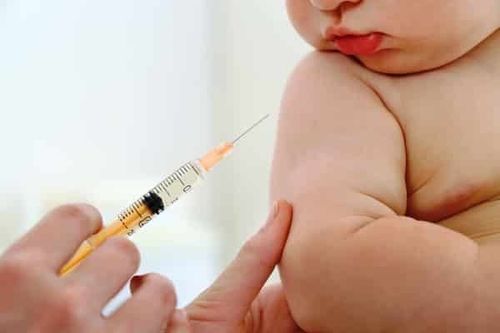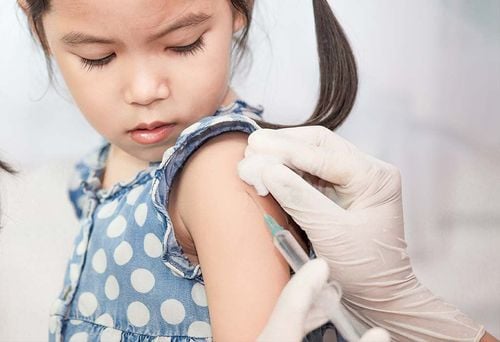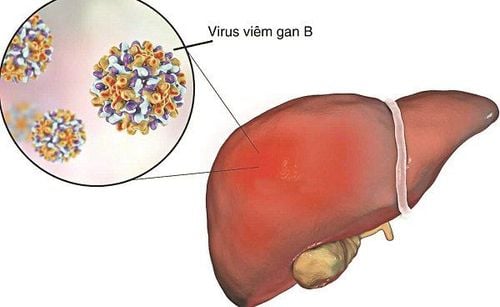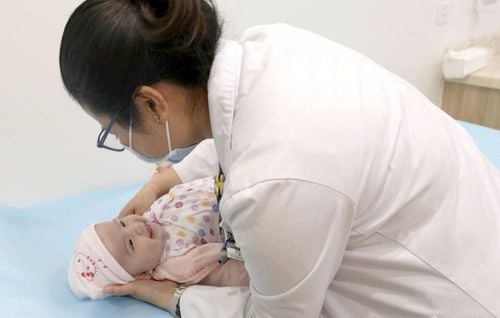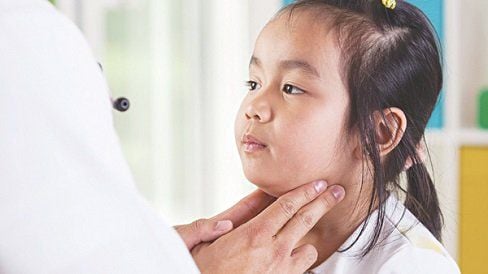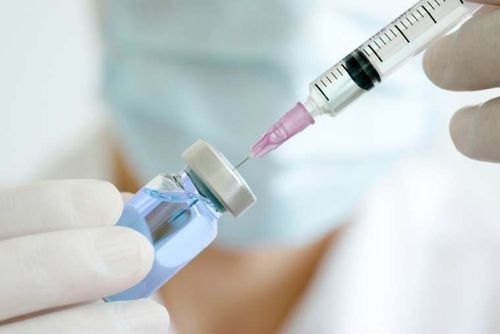This is an automatically translated article.
During elementary school from 7 to 10 years old, children should continue to receive a flu vaccine each year. If not fully vaccinated according to the immunization schedule for children 6 years of age and earlier, parents should consult a doctor to ensure that their children are supplemented with the appropriate vaccines.
1. Vaccination schedule for children 7 years old to 10 years old
1.1. Influenza Vaccine The flu vaccine protects children against influenza that is spread through the air or through direct contact with an infected person. Symptoms of flu include:
Fever; Muscle pain; Sore throat; Cough; Tired. Severe flu can put your baby at risk of pneumonia due to an infection, so children 6 months of age and older should get a flu shot every year.
1.2. HPV vaccine Human Papillomavirus - HPV is a common virus, usually seen in adolescents through the age of 26. Approximately 14 million people are infected with HPV each year. An HPV infection in women can cause cancer of the cervix and genitals or cancer of the penis in men. HPV also increases the risk of anal cancer, oropharyngeal cancer, and the formation of genital warts in both men and women.
Although 2 doses of HPV vaccine are generally recommended for children 11-12 years of age, the HPV vaccine can be added to the childhood immunization schedule as early as age 9 to help protect both girls and children. Boys are protected from viral infections and the risk of developing tumors or cancers caused by the HPV virus.
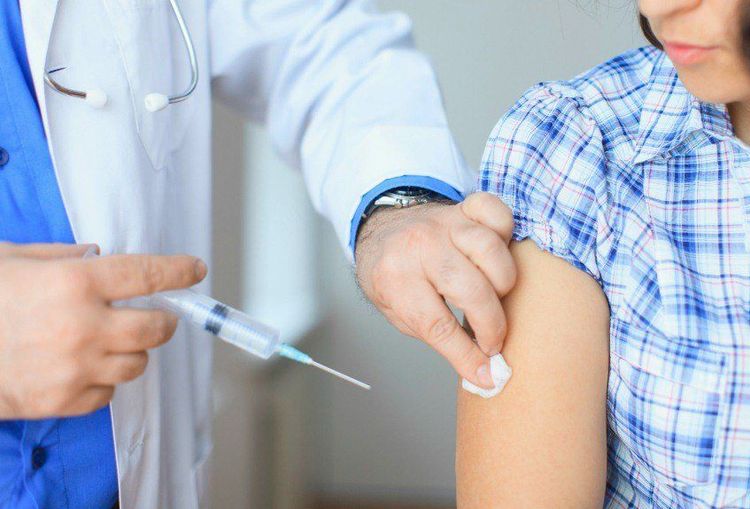
Vắc xin HPV có thể tiêm sớm nhất vào lúc trẻ 9 tuổi
2. Immunization schedule for children 10 years old and under
If your child has completed the immunization schedule for children 6 years of age and earlier, no additional doses are needed during these years. However, in the event that a child has not received one or more of the following vaccines, parents should talk to their doctor to make sure their child can get a booster shot while it is still in the appropriate period. These are vaccines that help protect children against diseases such as:
Tetanus, diphtheria and pertussis (Tdap): The DTaP combination vaccine protects against all 3 diseases tetanus, diphtheria and pertussis.
Tetanus can be transmitted through a cut in the skin, causing symptoms such as stiffness in the neck and abdominal muscles, difficulty swallowing, muscle spasms, and fever. If not treated promptly, tetanus is at risk of breaking bones, causing difficulty breathing and life-threatening in children.
Meanwhile, diphtheria and pertussis are both transmitted by air or by direct contact. Symptoms of diphtheria are sore throat, low-grade fever, weakness, and swollen lymph nodes in the neck. Complications can lead to swelling of the heart muscle, heart failure, coma, paralysis, and death.
Severe cough, runny nose, apnea in infants are common symptoms of whooping cough, if not well controlled, the disease can cause inflammation and infection in the lungs, even death.
Hepatitis A (HepA): The HepA vaccine protects against hepatitis A, which is spread through direct contact, or the use of contaminated food and water. Symptoms of hepatitis A can be fever, stomach pain, loss of appetite, fatigue, vomiting, yellowing of the skin and eyes, dark urine, or sometimes no symptoms at all. Complications of the disease include liver failure, joint pain, and dysfunction of the kidneys, pancreas, and blood.
Hepatitis B (HepB): The HepB vaccine protects against hepatitis B, which can be spread through contact with an infected person's blood or fluids. The disease sometimes has no symptoms, if any, usually includes: fever, headache, weakness, joint pain, vomiting, and yellowing of the skin and eyes. End stage hepatitis B will lead to chronic liver infection, liver failure or liver cancer.
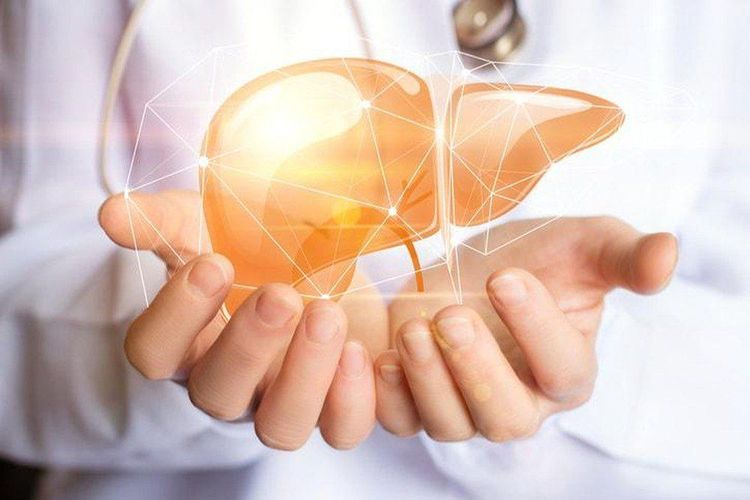
Vắc xin HepB bảo vệ cơ thể chống lại viêm gan B
Polio (IPV): The IPV vaccine works to prevent polio. The three routes of transmission of polio include: in the air, by direct contact, or by mouth. Although polio often has no symptoms, if present is simply a sore throat, fever, nausea, and headache; However, complications of the disease are very serious, causing paralysis or even death.
Measles, mumps, rubella (MMR): The MMR combination vaccine helps reduce the risk of 3 common childhood diseases: measles, mumps and rubella. The route of transmission of all three diseases is from the air or through direct contact.
Measles has typical symptoms such as fever with rash, cough, runny nose and red eyes. If the disease is not well controlled, it can lead to complications of brain inflammation, inflammation and infection of the lungs, even death. Meanwhile, mumps is recognized by a number of symptoms such as swelling of the salivary glands under the jaw, fever, headache, fatigue and muscle pain. Severely advanced mumps carries a risk of meningitis - an infection around the brain and spinal cord, inflammation of the brain, inflammation of the testicles or ovaries, and temporary or permanent hearing loss.
Common symptoms of rubella include rash, fever, and swollen lymph nodes. This disease is very dangerous if a pregnant woman gets it because it can lead to miscarriage, stillbirth, premature birth, or birth defects in the baby.
Chickenpox/varicella: The varicella vaccine protects children against chickenpox, also known as chickenpox, which is transmitted through the air or by direct contact. Typical symptoms of chickenpox include: rash and blisters, fatigue, headache with fever. If the disease progresses, it can lead to complications such as infection of blisters on the skin, bleeding disorders, inflammation of the brain, or inflammation and infection of the lungs.
During the times of taking the child to the doctor or during the annual health and physical examination at school, parents should bring the immunization schedule for the child that has been used since birth to consult the doctor. . Adhering to the recommended vaccination schedule for children aged 7 to 10 years is the best way to protect their health, help them avoid common diseases and develop comprehensively.
Vinmec International General Hospital uses a source of high-quality vaccines, of clear origin, suitable for each age to be vaccinated, ensuring safety from the stage of registration, preservation until put into use. .
For direct advice or to schedule an appointment to vaccinate your child at Vinmec, parents please book an appointment HERE or contact HOTLINE:
Vinmec Times City - Hanoi: 024 3974 3556 Vinmec Ha Long: 0203 3828 188 Vinmec Hai Phong : 0225 730 9888 Vinmec Da Nang : 0236 3711 111 Vinmec Nha Trang : 0258 3900 168 Vinmec Central Park - City. Ho Chi Minh City : 028 3622 1166 Vinmec Phu Quoc : 0297 398 5588 Vinmec Royal City Clinic - Hanoi: 024 3975 6887 Vinmec Saigon Clinic - (028) 3520 3366 Vinmec Gardenia Clinic - Hanoi: 024 3975 6788 Vinmec Metropolis - Hanoi: 024 3975 6886
Please dial HOTLINE for more information or register for an appointment HERE. Download MyVinmec app to make appointments faster and to manage your bookings easily.
Reference source: cdc.gov



